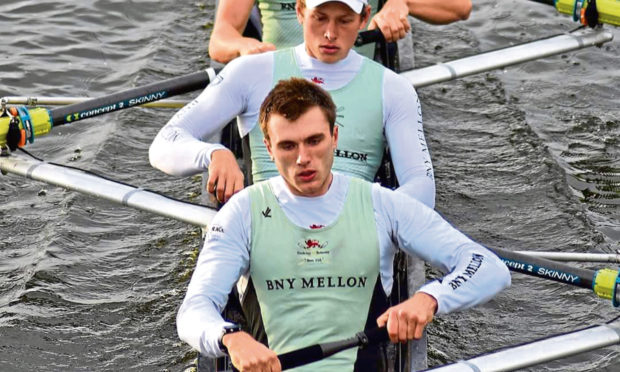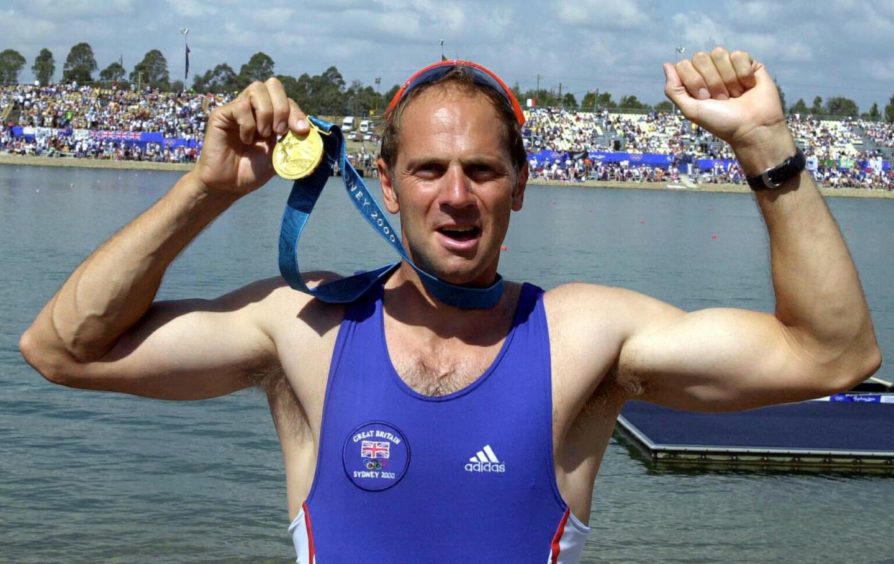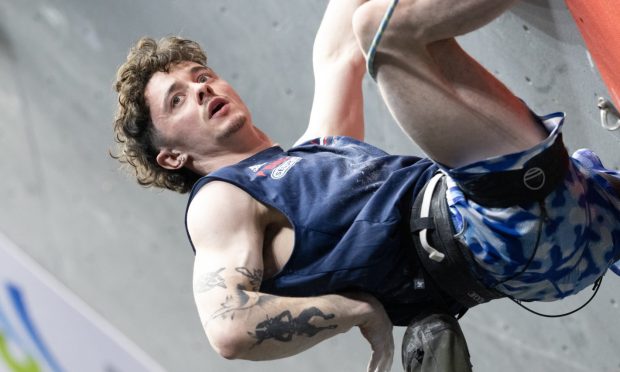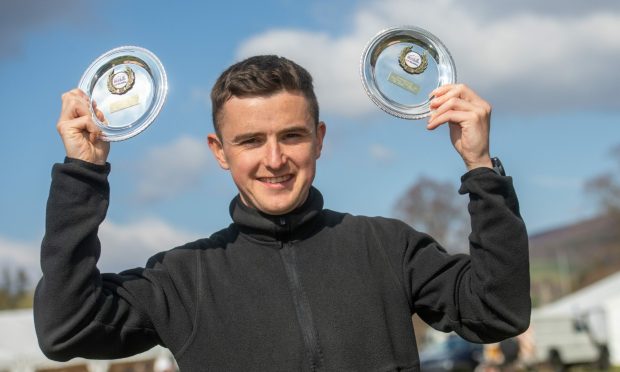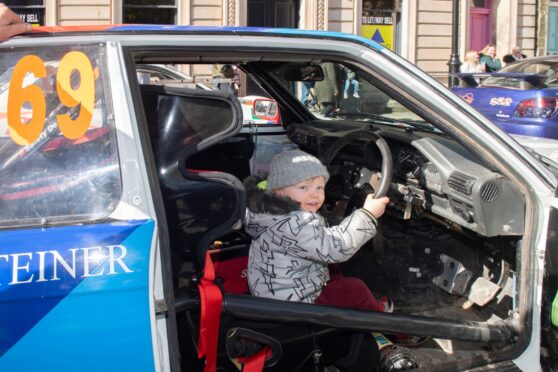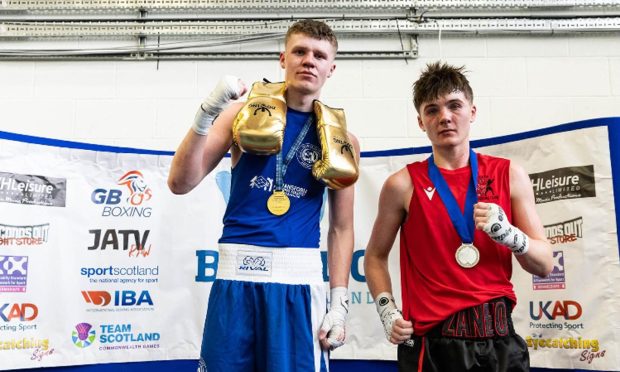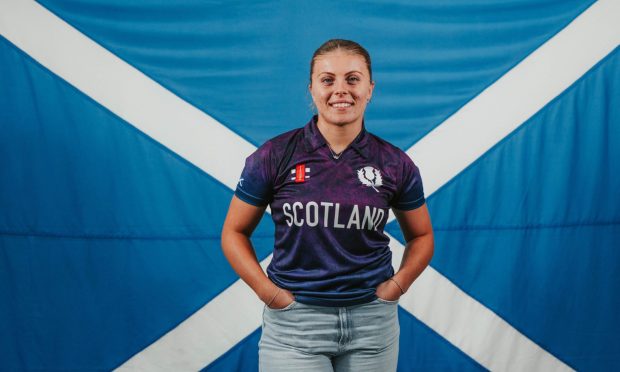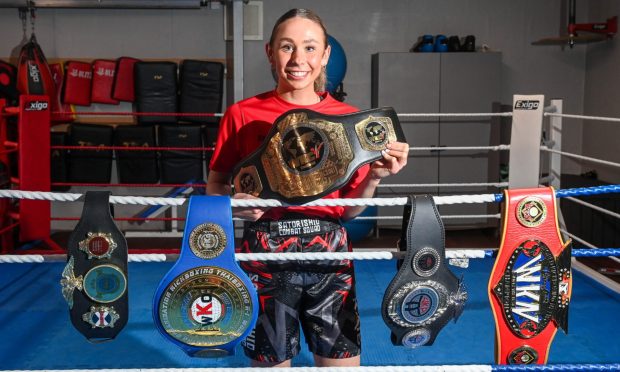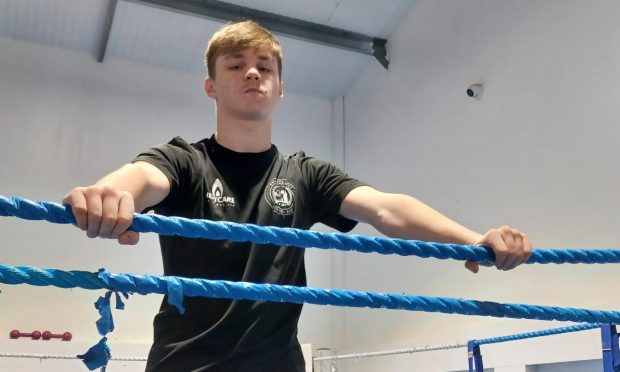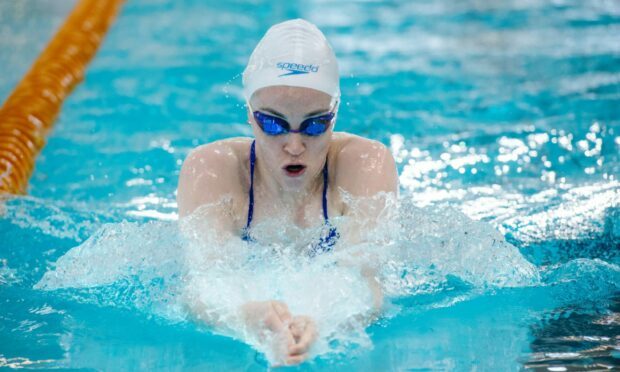Aberdeen rower Ben Dyer took inspiration from Olympic legend Sir Steve Redgrave to help manage illness and a promising sporting career.
Dyer, who will row for Cambridge in the Boat Race this weekend, has Crohn’s disease and reading Redgrave’s book on a flight gave him the motivation to get himself in the best condition possible to compete.
“I was on a flight to China to compete in a rowing event for Cambridge and I read Sir Steve Redgrave’s autobiography,” he said. “He had colitis and almost didn’t make the boat, even though he was clearly the best in the country at what he did.
“I thought ‘wait a minute – Crohn’s and colitis are incredibly similar’. That was a switch to take it seriously. I got my medication sorted and my fitness came on no end.
“Beforehand I was training and getting slower and slower. I was working in Dubai at the time and, with health insurance there, if you go to the doctor and ask for an iron infusion, they’ll give you it.
“When you come back to the UK and ask the doctor for an iron infusion, they look at you like ‘this is not right’. They looked at the cause, diagnosed me with Crohn’s and from there it’s been a slow journey to taking it more seriously and understanding it.
“I didn’t really speak to anyone about it. I didn’t speak to my family or my coaches. When I had a flare up, I would be on the floor for hours after testing. There was one test where I fell unconscious for two hours after. I knew something wasn’t right.
“The Crohn’s has come under control and it’s allowed me to keep progressing. My physiology is in a good place; I don’t think it would be if I hadn’t had the wake-up call of reading that book.
“I’ve changed my diet a lot. A rower eats an incredible amount – I eat little and often, so about six meals a day. There’s certain foods that are easier to digest.
“I sleep 10 hours for every 24-hour period, to stay on top of it. Lockdown was helpful with fitting that in. If you don’t, one of the main symptoms of Crohn’s is fatigue.
“I feel I’ve got a better understanding of it and that’s really helped me this year.”
Dyer has been undertaking a PhD in engineering at Caius College, Cambridge, since 2017 and had not previously participated in rowing.
The former Mackie Academy pupil was a keen distance runner and would regularly compete in races while he worked in Dubai.
It was not until he went to Cambridge in 2017 that he picked up an oar.
“I came to Cambridge a few months early for the PhD.
“There was a track-and-field meet with Oxford and Cambridge on a team against runners from Kyoto and Tokyo. There was a 5K race and I got blitzed.
“I wasn’t necessarily slow – it was about 17 minutes flat – but the guys were running 14 minutes, seriously fast. The standard was clearly higher than it was in Dubai.
“My head of department asked me if I wanted to come for an outing.
“I jumped in and, while I was terrible, I enjoyed it so I signed up to row. Once I got on the rowing machine, the guys in my college thought I had potential.
“It’s been a case of taking one season at a time. It’s been a hard goal ], but not too far off: Push yourself and have a hard, but achievable goal each year.”
The Boat Race was not run last year due to the pandemic, the first time it had been cancelled since the Second World War.
This year will see it moved from its traditional home on the River Thames to the Great Ouse in Ely, Cambridgeshire, due to continuing Covid restrictions in the capital and challenges navigating Hammersmith Bridge.
“Winning is everything. In Cambridge, a season is defined if you win or lose,” added Dyer.
“It’s doing it for all the alumni that have come before and my team-mates in 2020. Some of them didn’t get to race and some of them will never get to race, as it was their last year.
“Winning is everything in the Boat Race.”
